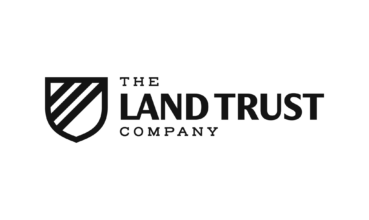“We don’t sell houses—we sell community,” says Nick Schlekeway, Founder and Designated Broker of Amherst Madison, a brokerage that has grown from $14 million in sales its...
How to Wholesale Real Estate in Illinois


Are you a first-time real estate investor looking to get a bang for your buck? Wholesaling real estate in Illinois is a great way to hit the jackpot while barely pulling the lever.
If you have your sights set on the Prairie State, there’s good news. Foreclosures in Illinois are on the rise, with one in every 385 housing units facing a default notice, scheduled auction, or bank repossession.
If you’re ready to dive into this lucrative investment opportunity, we can show you how to get started. Read on to find out how real estate wholesaling in Illinois works.
Key Summary
- Wholesale real estate involves securing a property contract at a low price and selling it to a buyer at a higher price, earning profit from the difference.
- Illinois offers a strong real estate market, with increasing sales and diverse property types, making it attractive for wholesalers.
- The state’s affordable property prices and favorable investment climate, including tax incentives, provide significant profit opportunities for wholesalers.
- Networking opportunities and access to resources in Illinois facilitate successful wholesaling transactions.
- Legal requirements in Illinois, such as obtaining a real estate broker’s license, ensure ethical and compliant wholesaling practices.
What is Wholesale Real Estate?
Wholesale real estate is a strategy where an investor secures a contract on a property at a low price and then sells that contract to a buyer at a higher price. They then earn a profit from the price difference.
This approach often involves properties that are distressed or sellers who are highly motivated to sell quickly. Real estate wholesalers don’t actually buy properties. Instead, they connect the seller with a buyer and facilitate the transaction to close the deal.
10 Reasons to Wholesale in Illinois
1. Strong Real Estate Market
Illinois has a robust demand for residential and commercial properties. The state’s real estate market has shown resilience and steady growth, which makes it attractive for investors.
During the month of May 2024 there were 0.2% more homes sold statewide compared to the same time in 2023. In Chicago, home sales dropped by only 1.3%. During the same one-year period, the median home price across the state increased by 9.1%.
2. Affordable Property Prices
Compared to coastal states, Illinois offers more affordable property prices. This allows wholesalers to acquire properties at lower costs. Additionally, affordable prices combined with high demand provide significant profit margins for wholesalers.
3. Diverse Property Types
Illinois offers a wide range of properties, from single-family homes to multi-unit apartments and commercial spaces. This diversity allows wholesalers to target various market segments and diversify their investment portfolios.
4. Favorable Investment Climate
Illinois has policies and regulations that support real estate investments, including wholesaling. There are several tax incentives and benefits for real estate investors in the state, including the property tax credit.
This reduces the overall tax burden on real estate investments by allowing investors to claim a credit on their state income taxes for a portion of the property taxes they pay on their investment properties.
5. Strong Rental Market
Cities such as Chicago have a high demand for rental properties, which ensures a steady income stream for investors. Wholesalers can easily find investors looking for properties with good rental income potential.
6. Networking Opportunities
Illinois has a vibrant real estate investment community that offers ample networking opportunities.
You can attend numerous conferences, seminars, and meetups to connect with potential buyers and sellers. Illinois REALTORS holds several year-round events and conferences.
It’s also worth signing up for the Midwest Real Estate Networking Summit. This two-day event focuses on networking and education for real estate investors, with opportunities to meet buyers, sellers, and industry professionals.
7. Access to Resources
The state has a large pool of experienced real estate agents, real estate attorneys, and contractors to assist in transactions.
Moreover, various organizations and institutions offer training and resources specifically for real estate investors and wholesalers. The most popular resources are:
- Illinois REALTORS
- Chicago Association of REALTORS
- Chicago Real Estate Investor Association
- South Suburban Real Estate Investors Association
8. Urban Development and Growth
Ongoing urban development projects enhance property values and investment potential. Illinois’ economic growth and development initiatives contribute to a healthy real estate market.
9. Strategic Location
Illinois is a major transportation hub with extensive road, rail, and air connectivity, increasing the attractiveness of properties.
The state is home to numerous businesses and industries, creating demand for both residential and commercial properties.
10. Flexible Wholesale Strategies
Investors can use different wholesale strategies such as assignment of contracts, double closing, or fix and flip. This depends on the market conditions and property types.
What are the Requirements to Wholesale Property in Illinois?
To successfully wholesale real estate in Illinois, you must understand the legal requirements and best practices. Here’s a breakdown:
Real Estate License
As of recent legislative changes, Illinois law requires that anyone engaging in real estate wholesaling must hold a real estate broker’s license.
This law aims to ensure that all parties involved in real estate transactions are protected and that transactions are conducted ethically and legally.
Business Entity Formation
Forming a legal business entity, such as an LLC, is advisable to protect your personal assets from any liabilities arising from your real estate transactions.
Marketing and Networking
Building a network of potential sellers, buyers, and other real estate professionals is crucial. Effective marketing strategies, including online listings and direct mail campaigns, can help you find potential deals.
Understanding Contracts
Familiarize yourself with real estate contracts, especially the assignment contracts used in wholesaling. You must ensure that the contracts are legally sound and include all necessary clauses to protect your interests.
Finding Wholesale Properties in Illinois
Finding the right properties is a critical step in wholesaling real estate in Illinois. Here are some strategies to locate wholesale properties:
- Public records: Access public records to find distressed properties or those nearing foreclosure. These can be excellent opportunities for wholesaling. A good place to check is the county recorder’s office such as the Cook County Recorder of Deeds, DuPage County Recorder, or Lake County Recorder.
- Real estate auctions: Attend auctions where properties are sold at discounted prices, often due to foreclosure or tax liens. You can check your local County Sheriff’s office (e.g. Cook County, DuPage County, or Lake County), or even the Illinois State Treasurer’s Office for unclaimed property auctions.
- Networking: Join real estate investment groups such as Chicago REIA, REIA of Greater Chicagoland, Lake County Property Investors Association, Southern Illinois REIA, and Illinois Valley Real Estate Investors Association.
- Direct mail campaigns: Send targeted mailers to homeowners who may be motivated to sell quickly, such as those in pre-foreclosure or probate situations.
- Online listings: Utilize online platforms such as Midwest Real Estate Data, Illinois REALTORS, Chicago Association of REALTORS, and REALTOR.com to find wholesale properties.
How to Get Started with Real Estate Wholesaling in Illinois
Education and training
Invest time in learning about real estate wholesaling through books, online courses, and local seminars. Understanding the fundamentals is crucial for success.
Obtain Your Real Estate License
Given the legal requirements in Illinois, obtaining a real estate broker’s license is a necessary step. This involves completing pre-licensing education, passing the state exam, and meeting other state-specific requirements.
Build Your Network
Establish connections with Illinois real estate agents, investors, contractors, and other professionals. Networking can provide valuable leads and insights into the local market.
Set Up Your Business
Form a legal business entity and set up your operational systems, including marketing strategies, lead generation tools, and customer relationship management (CRM) systems.
Start Marketing and Generating Leads
Implement your marketing strategies to start generating leads. Utilize both online and offline methods to reach potential sellers.
Evaluate and Negotiate Deals
Analyze potential deals to ensure they meet your criteria. Negotiate with sellers to secure properties at prices that allow for a profitable wholesale.
Assign Contracts to Buyers
Once you have a property under contract, find an end buyer and assign the contract to them for a fee.
Is Wholesaling Real Estate Legal in Illinois?
A common question among new investors is: “Is wholesaling real estate legal in Illinois?” The short answer is yes, but with important caveats.
To stay compliant, you must obtain a real estate broker’s license and adhere to all state regulations regarding real estate transactions. This includes:
- Illinois Real Estate License Act: This law governs the licensing and regulation of real estate professionals in Illinois.
- Illinois Consumer Fraud and Deceptive Business Practices Act: This act protects consumers from unfair or deceptive practices. Wholesalers must ensure transparency and honesty in their dealings.
- Illinois Title Insurance Act: This act governs the issuance of title insurance policies, which are crucial in real estate transactions to protect against issues with property titles.
It’s advisable to consult with a Illinois real estate attorney to ensure that your wholesaling activities comply with state laws and regulations. An attorney can help you navigate the complexities of Illinois wholesale real estate law and provide guidance on best practices.
Bottom Line
Wholesaling real estate in Illinois presents an exciting and profitable venture for new and seasoned investors. Success in wholesaling hinges on staying informed, building strong connections, and adhering to ethical practices.
By following the guide outlined above, we hope you’re prepared to embark on your wholesale real estate investment journey in the Prairie State. With the right approach, you can achieve significant profits and make a mark in the Illinois real estate market.
Similar Articles
Explore similar articles from Our Team of Experts.




If you have your sights set on foreclosures in Florida, there’s good news; Florida has one of the highest foreclosure rates in the United States. More specifically, one in every 2,632 hous...


With U.S. homeowners sitting on over $35 trillion in home equity and reluctant to refinance their low-rate mortgages, innovative financing solutions are finding their moment. Leading this sh...


After syndicating over $7.5 billion in real estate deals and selling his previous company with $1 billion in assets under management, Michael Anderson, Founding Member of PREIshare, could ha...


“The most doxxed piece of information is somebody’s personal residence,” explains David Lanciotti, Executive Vice President and General Counsel at The Land Trust Company. I...



